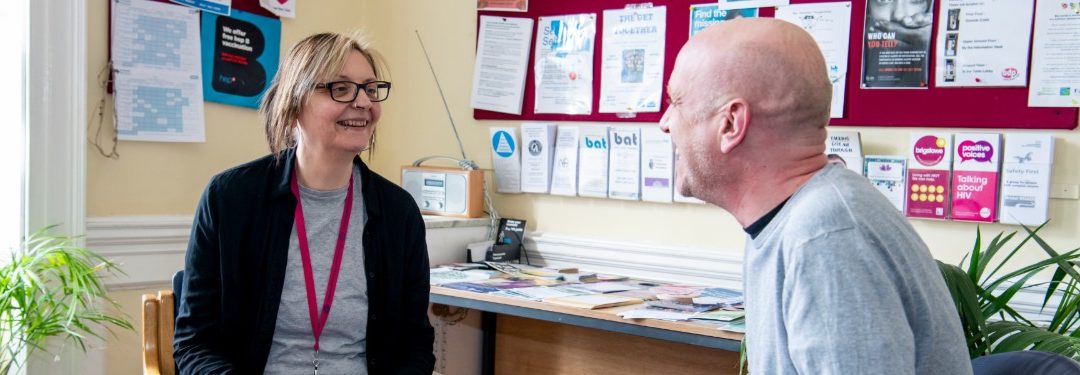‘In at the Deep End’ – delivering primary care in deprived communities during a pandemic.
News

This new paper (published 17 August 2021) highlights the challenges faced by community GP practices serving some of the most deprived areas in England during lockdown.
Summary
GPs and other primary care practitioners have unique insights into the impact of COVID-19 on their communities.
This qualitative study, conducted in the North East of England during the UK’s second wave of COVID-19, aims to explore experiences of delivering primary care in a pandemic among staff working in areas of blanket deprivation in North East England – in ‘Deep End’ practices.
Deprived communities are facing the brunt of the COVID-19 pandemic. Through the eyes of primary care staff in these communities, this paper shows that this goes beyond the impact of the disease itself – with low levels of health literacy, social distancing measures and remote consulting exacerbating many existing inequalities.
The research also highlights the crucial work done by district nursing and social prescribing link workers during the pandemic.
As such, it adds important context to the quantitative data on excess illness and death in deprived populations during the COVID-19 pandemic.
Background
‘Deep End’ general practices serve communities in the most socioeconomically disadvantaged areas. The first Deep End GP network was formed in Scotland to offer a forum for sharing ideas and developing interventions to mitigate health inequalities.
The North East of England has the lowest life expectancy in the country. The region performs the worst or second worst in the country for causes of death considered preventable: suicide and drug misuse at any age, as well as cancer, cardiovascular, respiratory, and liver diseases in those under 75.
As one of a range of measures being implemented to address health inequalities, and inspired by the Scottish Deep End model, colleagues from organisations across the North East and North Cumbria are working together to develop a Deep End network for our region..
You can find out more about the Deep End NENC here.
This study was carried out during the ongoing work to develop a regional Deep End network for the North East and North Cumbria.
Findings
The research team interviewed GPs, social prescribing link workers and nurses in Deep End GP practices in the North East.
Interview responses focussed on four main areas;
Some of the issues of concern raised in the interviews
Some of the benefits that were highlighted
Conclusions and issues for discussion
These findings are relevant to policymakers in both Primary Care and Public Health. They are also relevant to local authorities and adult education teams who contribute to the wider social determinants of health and the growing need for IT literacy.
Deep End primary care practitioners are well placed to advocate for their patients and their views are crucial in ensuring that future Public Health measures and major systems changes are implemented in ways that reduce rather than maintain or even increase existing inequalities in health and healthcare.
GPs experiences should guide future pandemic responses and any move to ‘digital first’ primary care, to ensure that existing inequalities are not worsened.
It is vital that any public health intervention is ethically implemented, with consideration given to the most vulnerable in society. Care should be taken not to increase existing inequality.
A GP’s view: ‘This paper highlights important issues which we perhaps haven’t talked about a lot’
Dr Sameena Hassan is the Joint Clinical Lead for the development of the Deep End North East and North Cumbria. She is a GP Partner and Clinical Director for Gateshead Outer West Primary Care Network.
Dr Hassan said: “Delivering community GP services during lockdown brought brand new challenges to GPs and community primary care providers, on top of the ‘normal’ challenges we faced on a day-to-day basis before this pandemic.
“This paper highlights very important issues which we perhaps haven’t talked about a lot and there’s quite a lot to unpick and learn from this. I am looking forward to sharing this research with colleagues and discussing the implications for us as ‘Deep End’ GPs. It will also be really interesting to compare and contrast the experiences of different community teams in different areas.”
About the authors
Lead author Dr Claire Norman, is GP registrar in the North East of England. During her GP training, she undertook an Academic Extended Integrated Training Post with Newcastle University. Dr Norman currently works at Bridge View Medical Group, a Deep End GP Practice in Sunderland.
Co-author Dr Josephine Wildman worked as a Research Fellow with the NIHR Applied Research Collaboration (ARC) North East and North Cumbria (NENC).
Co-author Dr Sarah Sowden is an Advanced Clinical Academic Fellow at Newcastle University and also works as a Consultant in Public Health at the Office for Health Improvement and Disparities in the North East.
Funding
This research is supported by the National Institute of Health Research (NIHR) Applied Research Collaboration (ARC) for the North East and North Cumbria (NENC).
Researchers from the NIHR ARC NENC are involved in co-designing the development of a Deep End network for the North East and North Cumbria, as well as leading evaluation work into its effectiveness. This project is linked to our Inequalities and Marginalised Communities theme. Find out more.
Read the full paper